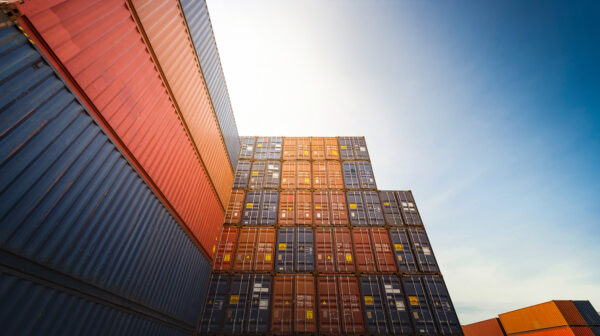The results of the recent U.S. election have the potential to reshape the global economic landscape, affecting trade, investment, and market stability.
For businesses worldwide, understanding and preparing for these changes is crucial to remaining competitive and resilient. As a major economic powerhouse, shifts in U.S. policies often have ripple effects across international markets, making it essential to adopt proactive strategies to navigate these changes effectively.
How U.S. elections shape global markets
U.S. elections often bring changes in economic priorities that ripple across international markets. Businesses must be ready to adapt to changes in three main areas:
- Regulatory Adjustments: New trade policies or revisions to existing agreements, such as CUSMA, could result in higher tariffs or import quotas. For example, if the U.S. introduces new duties on Canadian imports, it could affect businesses that rely on cross-border trade.
- Protectionist Policies: The U.S. may prioritize domestic industries by restricting foreign investments, offering subsidies to local businesses, or tightening technology exports. These measures could challenge international companies seeking to operate in the U.S. market.
- Globalization vs. De-Globalization: Geopolitical shifts, such as the formation of competing trade blocs or regional conflicts, could further fragment global trade networks. Businesses might face barriers like disrupted supply chains or the loss of access to key markets.
These disruptions highlight the importance of businesses embedding geopolitical considerations into their strategic planning to safeguard operations and capitalize on emerging opportunities.
Building resilience in a volatile world
Resilience is about more than just managing risks; it involves building the capacity to adapt and grow amid disruptions. Resilient companies are agile, adaptable, and prepared to address emerging risks. To strengthen resilience, businesses can take several steps:
- Plan for Various Scenarios: By anticipating potential outcomes, businesses can prepare for the unexpected. For instance, companies that rely on U.S.-Canada trade should evaluate how potential policy changes could affect their operations and explore alternative strategies to mitigate risks.
- Diversify Supply Chains: Reducing reliance on single suppliers or regions is critical. By leveraging trade agreements and regional incentives, companies can mitigate risks while improving cost efficiency.
- Strategically Align Operations: Relocating investments or operations to regions with favorable trade policies ensures continued access to key markets and enhances operational agility.
Moving beyond risk management
Integrating geopolitical awareness into business decision-making is no longer optional—it is fundamental. Companies that monitor trends and implement forward-thinking strategies can transform volatility into a competitive advantage. This involves maintaining agile supply chains, tailoring talent strategies to regional needs, and aligning investments with trade flows. Moreover, organizations that establish dedicated teams to analyze and respond to geopolitical risks are better positioned to maintain stability and capitalize on favorable shifts.
Preparing for uncertainty
The implications of the U.S. election extend beyond its borders. Countries like Canada must adjust their trade strategies to align with shifting U.S. policies while exploring opportunities in other regions. Initiatives like Canada’s Indo-Pacific Strategy, which promotes trade and investment ties with Southeast Asia, demonstrate how businesses can diversify their markets and enhance resilience. Programs like the Trade Gateway provide valuable platforms for Canadian companies to explore opportunities in sectors like technology, manufacturing, and sustainable energy.
To navigate these shifts, business leaders should regularly assess their readiness and ask critical questions:
- Are there new risks on the horizon, such as tariffs or regulatory barriers?
- How much risk is the business willing and able to absorb?
- How quickly can mitigation strategies be implemented?
Proactively addressing these questions ensures that businesses are not only resilient in the face of disruptions but also positioned to thrive in an evolving environment.
Resilience: The key to long-term success
The U.S. election serves as a stark reminder of the interconnected nature of the global economy and how quickly circumstances can change. Businesses that prioritize resilience—through thoughtful planning, risk mitigation, and strategic adaptation—are better positioned to weather disruptions and seize new opportunities. Contact our team of seasoned lawyers from the Global Trade and Customs Group for tailored legal strategies that ensure your business not only withstands disruptions but thrives in a changing global economy. Together, we can transform challenges into opportunities for growth.





